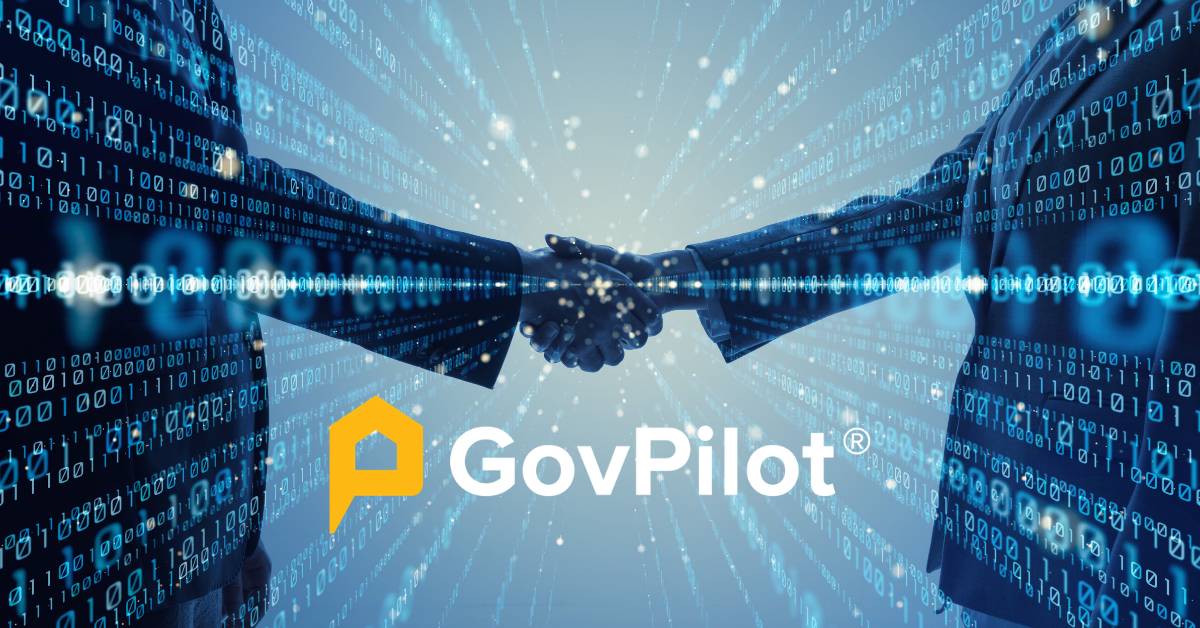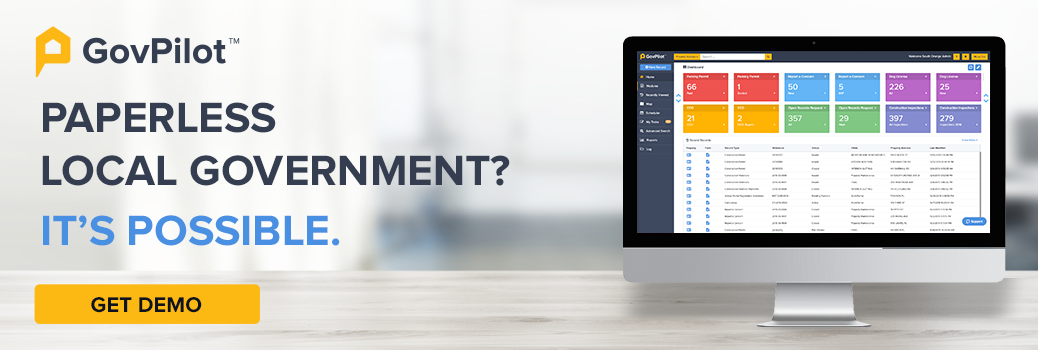Millions of people across the globe depend on their local governments for essential, often life saving, services. Local government services are wide-ranging, encompassing everything from trash collection, permit approvals, providing clean water, and paving roads. Local governments ensure the smooth functioning of our societies and livelihoods.
But when these services become subpar, the repercussions to the community can be profoundly disruptive. Missed garbage pickups lead to unsightly and unhealthy environments. Delays in permit approvals can stall crucial projects, which can impact the local economy and job creation. Inefficient water utilities can result in higher rates and even water shortages.
The ripple effects of these service failures can be far-reaching and lead to public frustration and distrust in local government. Contrary to popular belief, these deficiencies are not always intentional or due to lack of effort on the part of localities. More often than not, underperforming services stem from a complex web of challenges, such as aging infrastructure, limited resources, and bureaucratic red tape.
Thankfully, these challenges are not insurmountable. Thanks to advancements in technology, local governments now have their pick of robust solutions to help create efficiencies, improve service delivery, and attract more people and businesses to your community. In this blog post, we’ll delve deeper into the challenges facing local governments, and how solutions offered by technology – and GovPilot in particular – can transform municipal service delivery and minimize disruptions.
Key Municipal Services Offered by Most Local Governments
Proactive, efficient, and robust municipal services are the cornerstone of a thriving community. Each department, agency, program or service plays a critical role to support the safety and wellbeing of residents. While diverse in nature, municipal services work together to ensure the smooth functioning of society.
Here are some of the most important municipal services offered by local governments to their citizens:
-
Public Works Department
Maintains roads and public infrastructure and manages utilities like water and waste disposal. Without a well-managed water supply and efficient waste disposal system, public health could be at risk.
Here are the key components of a Modern Public Works Department Strategy.
-
Administrative Departments
Works behind the scenes to keep the wheels of local government turning. Responsible for public data management, meeting agendas, policy development, application processing, customer service, and financial management – among many others!
-
Code Enforcement
Ensures local laws and regulations are adhered to, and help maintain order and safety within the community. Inspectors make sure that buildings meet safety standards, local businesses operate within the law, and citizens respect zoning ordinances.
How Can Local Governments Modernize Code Enforcement? Consider advice from the experts.
-
Health Services
Provide and store vital public health information, manage vaccination programs, and coordinate responses to health emergencies such as local public health testing. Health departments are often a locality’s first line of defense against diseases and health hazards.
Are you a health department leader? Checkout GovPilot’s resource with Tips for Public Health Directors and check out GovPilot solutions to improve public health, such as How To Form A Local Government Air Pollution Strategy.
-
Social Services
Ensures all residents have access to essential life-supporting services, such as housing, food, senior care, utility assistance, child support – and more.
-
Court Services
Administers justice according to local laws and ordinances, supporting residents, resolving disputes, and ensuring that the rule of law is maintained.
See the Best Court Management Software guide for a look at how tech can help your municipal court.
Common Public Service Delivery Challenges Faced by Local Governments
While smooth service delivery is always the goal, many local governments face obstacles that make efficient operations challenging. Some of the most common challenges faced by local governments are limited budgets, time constraints, bureaucratic red tape, and threats to cyber security.
Let’s break these down:
-
Limited Budgets
Many local governments operate on tight budgets and are unable to allocate sufficient funds to each department or initiatives. For example, a public works department might lack the necessary resources to maintain and repair city infrastructure, leading to potholes in roads or malfunctioning street lights. Similarly, public health services may be understaffed, which may compromise outreach and even patient care delivery.
Consider these Government Budgeting Management Tips and Municipal Revenue Generation Sources.
-
Time Constraints
Local government administrators are often overwhelmed with the sheer volume of tasks they need to complete, which may be exacerbated by short staffing levels. Staff shortages and increased workloads can lead to a backlog of cases and delayed services. As an example, a housing department might have thousands of applications for affordable homes, but only a handful of staff to process the requests, resulting in long waiting periods for applicants.
-
Bureaucracy
Although a necessary component of government operations, layers of bureaucratic approvals can complicate simple situations and lead to significant inefficiencies. For example, a simple permit application for a home renovation may need to go through several departments for approval, leading to unnecessary delays and frustrations among residents.
-
Cyber Security
The rise in government cyber threats poses significant risks to the security and reliability of municipal services. Cybercriminals often target government systems due to the sensitive data they hold. A successful cyber attack can lead to a data breach, compromising personal information and eroding trust in local government.
These challenges underscore the urgent need for local governments to embrace technology to enhance operational efficiency, improve service delivery, and safeguard systems against cyber threats.
See GovPilot’s security overview for a more detailed look at how government software is cyber secure. Here are more helpful resources for managing your local government cybersecurity:
- Government Cybersecurity Strategy for Preventing Ransomware Attacks
- How to Train County & Municipal Workers on Cyber Security
- Federal Cybersecurity Grants for Local Governments
- How the Government Cloud Keeps Data Secure
Government Technology as a Solution to Better Municipal Service Delivery
Technology wields the power to revolutionize the way municipal services are delivered. From better issue identification and visualization to more strategic planning and execution, technology enables every department to function more efficiently with fewer resources.
Here's how government technology is making a difference in each municipal department:
Public Works Software:
Using public works technology, such as GIS mapping, DPWs can better visualize projects, which promotes better planning and execution. Other technologies, such as asset management software or online trash collection scheduling, ensure resources are managed more efficiently and the constituent experience is a good one.
Clerk/Admin Software:
In administrative departments, digitizing paperwork streamlines processes, which saves valuable time and can reduce errors. Technology solutions, like municipal clerk software, makes it easier for constituents to access public records and forms, improving their overall experience.
Code/Law Enforcement Software:
Both GovPilot’s code enforcement software and law enforcement software solutions are designed to improve inspections and enforcement by tracking code violations, identifying trends, and making it simple for residents to report concerns.
Health Services:
With the use of technology, health departments can improve health testing within a community, and ensure they meet HIPPA standards, which proactively promotes public health. Additionally, cloud-based inspection software and digital health licensing can help public health departments streamline the licensing processes, freeing up time to focus on more impactful public health initiatives.
Explore the health department software product for more information.
Housing Services:
Digitizing landlord registration, housing inspections, and more can make housing services more efficient, transparent, and accessible. With all housing related initiatives on one housing department software solution, housing services can reduce redundancies and save on resources.
Parking Management:
Parking management software bodes many great benefits too. With digital permits, parking applications, and violation tracking, municipalities can simplify local parking management strategies, help eliminate manual errors, and improve revenue collection.
Engineering:
From start to finish, engineering software empowers local governments to review, approve, and track projects holistically. Digital project management tools facilitate efficient planning and execution of engineering projects, ensuring projects are completed on time and within budget.
Courts:
Courts can also see improvements in transparency, efficiencies, and customer service by upgrading systems with new court management technology. Not only can courts reduce paper with technology upgrades, but they can also provide the digital convenience that constituents expect.
Explore the guide to Government Software Solutions Across Departments for more details about GovPilot modules for every government department.
Improving Citizen Service Delivery with GovPilot
Local governments provide a plethora of essential services that citizens rely on daily. But due to various challenges, municipal services often underperform, which leads to dissatisfaction, frustration, and distrust among residents.
By leveraging technology, particularly platforms like GovPilot, every local government department can significantly enhance the efficiency and effectiveness of their services. The future of municipal services is digital, and GovPilot is ready to lead the way.
If you are interested in improving service delivery for your department, contact us today for a demo.
Government Service Delivery FAQs
-
What is Service Delivery in Local Municipalities?
Municipal or city service delivery is the operations taken to provide a local government's day-to-day services to a community’s citizens. Municipal service examples include trash and recycling collection, water utility management, building inspection, etc. to the taxpayers in their neighborhood.
-
Why Are Municipal Services Inefficient?
Local governments constantly fail to deliver on municipal services that their citizens expect. These delays that cause distrust in municipal governments occur due to:
- Poor government scheduling management
- Budgetary constraints
- Bureaucratic red-tape
- Slow-moving government workflows and processes
- Antiquated computer systems and government IT
- Overcoming language barriers
Don't cause any distrust for the local government from your citizens, address aspects of your government departments that may make municipal services inefficient.
-
How Does Government Software Improve Municipal Service Delivery?
The benefits of government software for any department are clear. Municipal services can be made better with GovTech by:
- Automation of administrative tasks using robotic process automation
- Moving citizen and business forms / applications to an online, cloud-based format with proper government website design.
- Simplified digital approval of business registration, permit applications, etc.
- Using Government IT ticketing software for accountability on getting IT projects completed quickly.
- Automated scheduling notifications for inspections, asset maintenance, and other critical operations.
Read on:
- Streamline Constituent Services
- How Permitting Software Works
- Government Fleet Management
- Government IT Strategy
Sources:







